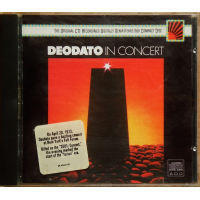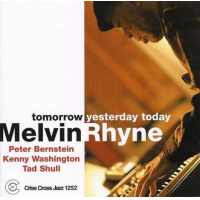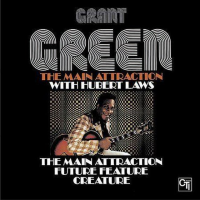Home » Jazz Articles » Liner Notes » Bobby Cole: A Point of View
Bobby Cole: A Point of View
Frank Sinatra walks into a bar...
...Specifically, he walks into Jilly's, on 52nd Street between Broadway and 8th Avenue. Actually, Jilly's was more of a piano bar/restaurant. Sinatra chose to call it a "bistro." It was right there inside the matchbooks scattered all around the joint—back when people still ate and smoked at the same time—in public. On the matchbook cover was a drawing of a red piano right next to a jauntily-fonted "Jilly's." When opened, the inside cover read, "My favorite bistro—Frank Sinatra."Why all this business about Frank's favorite bistro? Because it was where Frank's "favorite saloon singer"—Bobby Cole—held court for many years. The Bobby Cole Trio also played The Living Room, Ali Baba East, and a host of Manhattan's many other niteries, eateries, lounges, and piano bars. But the residency at Jilly's—featuring Bobby on vocals and piano, Ralf Rost on bass, and Arnold Wise on drums—was Bobby's steadiest of steady gigs.
Born Robert Kane Sarnicole in Astoria, Queens, in 1932, Bobby Cole was a singer, a jazz pianist, an arranger, a songwriter, and an iconoclast. In a perfect world, he would've also been a huge star.
The Bobby Cole Trio was playing the aforementioned Living Room in January of 1960 when Billboard's Howard Cook dropped in to see the club's headliner, Sylvia Syms. Cook's review in the magazine a few days later raved about Ms. Syms. There were also some nice words about singer Adam Wade, second on the bill. But the last paragraph of Cook's review gave the opening act a major career boost: "Rounding out the bill is The Bobby Cole Trio. Cole is a fleet pianist with an attractive style and a pleasant way with a song. If he's not already signed, he's overdue."
Shortly thereafter—thanks in no small part to Cook's kind words—The Bobby Cole Trio was signed to Columbia Records. A few months later came New! New! New! The Unique Sounds Of The Bobby Cole Trio—the group's lengthily-titled debut LP for the label. It was also their lengthily-titled swansong for the label, despite even more kind words in the pages of Billboard: "A more or less typical night club set of smart singing and playing arrangements are packaged here by Cole and trio. Cole, who has been compared to Mel Tormé and has certain Chris Connor phrasings, sings well thruout. Material is treated in hip fashion and includes unusual items like 'Ebb Tide,' 'Lilac Wine,' and 'I'm Forever Blowing Bubbles' among the nine tunes."
And therein lay the rub. Bobby, bassist Joseph Sanzo, and drummer Robert Ferro had gone into the studio and recorded their nightclub repertoire of covers. Granted, the arrangements— both vocal and instrumental—were exceedingly original. Not surprisingly, the LP's liner notes gave it all a positive spin: "Part of the fascination in Bobby's music arises from the intricate and witty arrangements he has made of the songs, shifting tempos, changing harmonies..."
Unfortunately for Bobby, none of his own compositions had appeared on the album. On top of that, his nightclub charisma couldn't be captured on vinyl—at least not yet.
Judy Garland walks into a bar...
...The very same Jilly's that Frank Sinatra had first walked into a few years earlier. It was now January of 1964, and the legendary singer/actress had flown in from the Coast to take a break from taping The Judy Garland Show for CBS television. At the piano, naturally, sat Bobby Cole, who chose to sing Cy Coleman's "You Fascinate Me So" that evening; a song that— unbeknownst to Bobby—was a personal favorite of one Judy Garland.Coincidentally, Bobby just happened to have heard the 1961 album Judy At Carnegie Hall for the first time only days before Judy walked into Jilly's. When Bobby finished his set, he strolled over to Judy's table to let her know how knocked out he'd been by her Carnegie Hall LP. She, in turn, let Bobby know she had been knocked out by his performance of "You Fascinate Me So."
And with that, a rapport was born.
A few weeks later, Bobby found himself working for Judy Garland. Judy's TV show was fighting an uphill battle against the mega-hit Western Bonanza over on NBC, so her show's producer, Bill Colleran, asked Bobby to come to Hollywood to act as an idea man. The job description was vague, but the offer of a thousand dollars a week was not, so Bobby soon arrived in L.A., ready to be a man of ideas.
Meanwhile, as Bobby would soon discover, Judy had not been getting along with Mel Tormé, the show's musical arranger and writer of special material. "I was not out there to replace Mel," Bobby told author Mickey Deans, "But to work with Judy on new material and new songs, and if she decided to use them on the show, beautiful."
Even so, in short order Mel was out, and Bobby—very much against his will—found himself to be the show's new musical arranger. On March 22, 1964, Cole appeared as a guest on the show, at one point singing the Frank Loesser/Burton Lane song, "The Lady's In Love With You," and then playing piano for Judy as she sat on a stool next to him, singing "Poor Butterfly." It was a magic moment—and in that moment it was apparent just how great the show at its best could be. But due to the star's myriad health problems, endless changes in personnel, and the impossible juggernaut that was Bonanza, CBS pulled the plug less than two weeks later.
With the cancellation of Judy's TV show, Bobby returned to New York and Jilly's, at which point his friend Jack Lonshein decided the time had come for Bobby to make a new record. And not just on a new label (the Columbia Records deal having long expired)—Jack wanted Bobby the singer/songwriter/pianist to record an album of all original material.
By day, Lonshein painted portraits for the album covers of acts on Bob Shad's Mainstream Records roster. Jack felt Bobby deserved to be a Mainstream act as well but was unable to convince Shad. After failing to get Bobby signed to Mainstream or anywhere else, Jack took matters into his own hands and formed a label he called Concentric Records. In 1966—with Jilly's regulars Ralf Rost on bass and Arnold Wise on drums, along with Kathy Kelly occasionally accompanying Bobby on vocals—Cole recorded the dozen songs that appeared on Concentric's debut album, A Point Of View, with cover art, of course, by Jack Lonshein.
Lonshein's label stumbled right out of the gate. A Point Of View was released, albeit briefly, in the latter part of 1966. It was listed under "New Album Releases" in the October 22, 1966, issue of Billboard. The following week, it received a 4-star review in the magazine. Then everything went silent.
Ten months later, an article titled "Concentric Label Arrives" appeared in the August 5, 1967 issue of the music trade, Cash Box. The piece called Concentric "a new disk company under the aegis of Jack Lonshein," and announced, "First release by the firm is an LP called A Point Of View, featuring singer-composer Bobby Cole." It also said that Lenny Lewis, director of sales and promotion for the label, confirmed that "national distribution has been set."
In the same article, there was interesting news about Concentric's sole act. "A headliner at Jilly's for the past few years, he will arrange and conduct Judy Garland's upcoming Palace Theater engagement here." Even though the TV show hadn't worked out, Bobby had stayed in Judy's good graces, and vice versa.
The same week Cash Box announced the arrival of Concentric, Record World included Bobby's album among the "new releases" it chose to review: "City boy interprets the natural (or is it unnatural) life around him. Bobby is definitely a boy with a point of view and he lets it be known on this package of songs he wrote and plays marvelously." Grammar and punctuation aside, the write-up in Record World was the kind of positive reaction the album deserved.
Billboard also got in on the act, including A Point Of View as one of the "New Album Releases" (yet again) in its August 12, 1967 issue.
No matter what year the album was officially released, it has proved to be timeless. The dozen songs on A Point Of View are a collection of what might be best described as secret jazz standards. None of the songs could be considered well known, although they each deserve to be. In addition to his obvious talents as a singer and pianist, Bobby Cole was a brilliant song crafter, both as a lyricist and composer. Exhibit "A" is "Lover Boy," a song that Bobby opens with a recited verse:
The perpetual search for romance is a form of recreation
Enjoyed by those who spend their lives in a constant state of frustration.
And some with uncommon tenacity, related to overcapacity
When the cause of the trouble, in essence, lies rooted in their adolescence
A phase of life that they never outgrew, and from all indications, are not about to.
A Point Of View also includes what must surely be one of the finest insult songs ever committed to tape. In "No Difference At All," each line explains to an ex-lover the differences between the "ex" and the singer's latest flame:
She's like pink champagne, and you're like beer.
You're like scratchy old corduroy, and she's cashmere.
It's the kind of piece many a songwriter might be hesitant to write, but Bobby had the gall to not only write it—he also sang it with great gusto.
There are truly no weak entries among Bobby's dozen originals on the album. If it had been on a major label, the record could've made Bobby Cole a major recording artist. But it was not to be. Whether or not the label really did find national distribution, as Lenny Lewis had told Cash Box (in truth, finding a copy of the album outside of the city was a rare feat), A Point Of View didn't touch the jazz charts.
But the Cash Box piece was very accurate about Bobby arranging and conducting Judy Garland's upcoming shows at The Palace. The recorded result was the 1967 LP, At Home At The Palace, by "Miss Judy Garland accompanied by Bobby Cole's Orchestra." Although in a secondary role, Bobby Cole had finally appeared on an album that sold far beyond the five boroughs.
And then, in August of 1968—improbable as it might seem—36-year-old saloon singer/jazz pianist Bobby Cole scored a hit on the national pop charts. Having heard songwriter Jerry Jeff Walker perform "Mr. Bojangles" live, Bobby immediately went into the studio and recorded his own unique arrangement of Walker's song. Jack Lonshein rushed the single out on Concentric shortly before the release of Jerry Jeff's own version on Atco Records. In fact, Lonshein rushed the single out so fast that the title appeared as "MR. BO JANGLES" on the label.
Believing strongly in the record—and knowing he didn't have the budget or distribution to generate major sales—Jack quickly licensed the single to Date Records, a subsidiary of Columbia. Jerry Jeff's record hit Billboard's "Hot 100" chart first, on July 27, 1968. Bobby's single debuted the following week. When the dust settled, Jerry Jeff's record had peaked at # 77. Bobby's single had topped out at # 79. Over two years later, "Mr. Bojangles" would finally become a Top 10 hit. The Nitty Gritty Dirt Band's version is the one that caught on with the public, after which literally hundreds of others would go on to record the song. But for a few short weeks in the waning summer of 1968, Bobby Cole had a chart record with the very first recording of a song that has since become a standard.
Bobby continued to perform and occasionally record. There would be a second single on Date that flopped. There would also be more recordings financed by Jack Lonshein, many of which are included in this collection.
Among the gigs outside Manhattan, there was a stretch at Caesar's Palace in 1970. In the mid-1970s, Bobby did multiple tours of Europe with The Louis Falco Dance Company. The following decade he had a 5-nights-a-week gig at Café Versailles on East 50th Street.
The years passed and Bobby Cole's coal black hair turned white while his husky "smoked-ten-thousand-cigarettes/drank-a-whole-lotta-booze/played-a-thousand-smoke-filled-joints" voice became even huskier. In July of 1992, The New York Times announced an open-ended engagement for Bobby at Campagnola, an Italian restaurant on First Avenue at 74th Street. The article also said Bobby's performances created "the kind of romantic aura generated in films like Casablanca."
As Humphrey Bogart once said, "All you owe the public is a good performance." It could've been Bobby Cole's motto. He continued to perform at Campagnola for the next four-plus years.
Bobby was a block away from the restaurant—according to eyewitnesses—when he "steadied himself on a lamppost and slowly sank to the sidewalk." He passed away at a nearby hospital a few hours later. The date was December 19, 1996. Bobby Cole was 64 years old.
In addition to Bobby's own recordings of his original songs, Freddy Cole (brother of Nat "King" Cole) recorded Bobby's "You Could Hear A Pin Drop." Frank's daughter, Nancy Sinatra, recorded his song, "Flowers." And on his 2021 album, Surrounded By Time, Tom Jones recorded "I'm Growing Old," the final song on Bobby's album, A Point Of View.
Liner Notes copyright © 2026 Randy Poe.
A Point Of View can be purchased here.
Contact Randy Poe at All About Jazz.
Randy Poe is an author, music publisher, musician, and frequent writer of liner notes.
Track Listing
Status Quo; The Name Of The Game Is Trouble; Lover Boy; You Can't Build A Life On A Look; But It's Spring; Heat; You Could Hear A Pin Drop; A Change Of Scene; A Perfect Day; Elegy For Eve; No Difference At All; I'm Growing Old.
Personnel
Album information
Title: A Point Of View | Year Released: 1967 | Record Label: Omnivore Recordings
Tags
PREVIOUS / NEXT
Support All About Jazz
 All About Jazz has been a pillar of jazz since 1995, championing it as an art form and, more importantly, supporting the musicians who make it. Our enduring commitment has made "AAJ" one of the most culturally important websites of its kind, read by hundreds of thousands of fans, musicians and industry figures every month.
All About Jazz has been a pillar of jazz since 1995, championing it as an art form and, more importantly, supporting the musicians who make it. Our enduring commitment has made "AAJ" one of the most culturally important websites of its kind, read by hundreds of thousands of fans, musicians and industry figures every month.




















